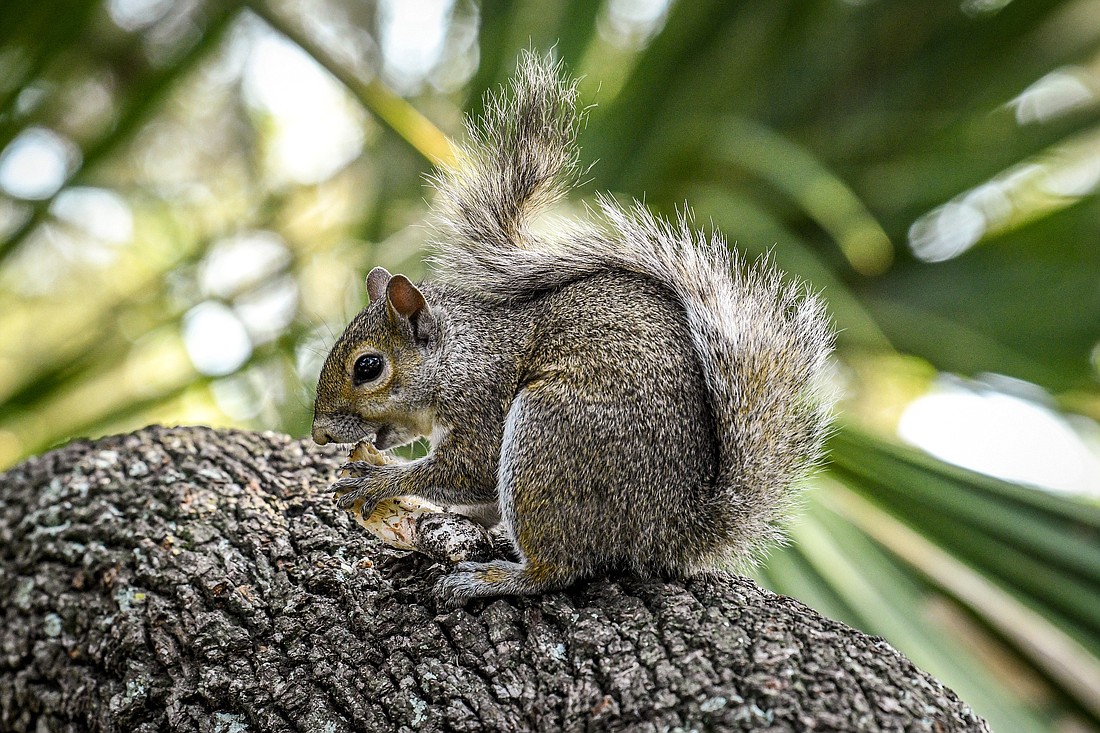- May 10, 2025
-
-
Loading

Loading

The ubiquitous eastern gray squirrel is one of Florida's three native squirrel species and is found in both natural and urban settings.
Although very adaptable, these diurnal mammals prefer locations with mature tree canopies. Such habitats offer abundant nesting cavities and allow them to move about without traveling on the ground, where they're more vulnerable to predators such as owls, hawks, snakes, bobcats, coyotes, raccoons and cats.
Squirrels are considered critical for the health and balance of the ecosystems they inhabit. In addition to being a food source for many species, as consumers (and cachers) of nuts and seeds, they provide other vital ecosystem services, such as seed dissemination and plant diversification. Indeed, thanks to their seed-caching activities, squirrels have an important role in maintaining Florida's native long-leaf pine ecosystem.
But when living in close proximity to humans, squirrels, like other wildlife, can become dependent on people for food, to the detriment of their ecosystems. Such dependence can occur due to unintentional feeding, as happens when animals raid loosely secured trash or find litter. But unfortunately, wild animals are often directly fed by humans.
Feeding wildlife never ends well for them. It can be dangerous for us. And in some cases (e.g. American alligators) it’s illegal. Wild animals have specialized diets and can become malnourished or die if fed foods that don't provide the nutrients they need.
Feeding young animals prevents them from developing critical foraging skills. Importantly, it only takes a few feeding incidents for wild animals to lose their natural fear of people and associate us with food. Though cute, squirrels are wild animals with sharp teeth and nails that become demanding and aggressive when food is no longer provided. In fact, due to public safety concerns, feeding wildlife at Myakka River State Park can actually be a death sentence for animals. For example, American alligators who start approaching park visitors after being illegally fed have to be killed.
We can help keep Florida's wildlife healthy and our ecosystems balanced by never feeding wild animals. By not leaving litter behind and keeping trash receptacles secure, we can avoid unintentionally feeding them, too.
Friends of Myakka River exists to support Myakka River State Park and the Wild and Scenic Myakka River. Together, we're protecting and sharing Myakka's Magic, to the benefit of future generations, and our own. Follow us @FriendsofMyakkaRiver.